Space
Sign up for our newsletter
We summarize the week's scientific breakthroughs every Thursday.
-
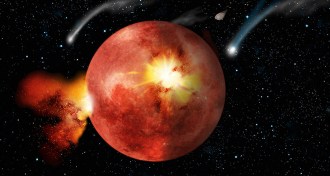 Planetary Science
Planetary ScienceMoon rocks may have misled asteroid bombardment dating
Discrepancies in moon rock dating muddy Late Heavy Bombardment debate.
-
 Planetary Science
Planetary ScienceRock star Freddie Mercury now has his own space rock
Queen front man Freddie Mercury is the latest in a long list of celebrities to have an asteroid named after him.
-
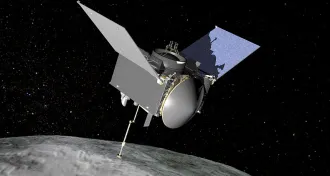 Planetary Science
Planetary ScienceOSIRIS-REx spacecraft launches tonight for mission to grab asteroid sample
NASA’s OSIRIS-REx spacecraft is about to launch for a seven-year mission to study the asteroid Bennu and bring samples of the space rock back to Earth.
-
 Astronomy
AstronomyProxima b deserves buzz, even if some didn’t notice
Editor in chief Eva Emerson discusses Earth's newest potentially habitable neighbor.
By Eva Emerson -
 Health & Medicine
Health & MedicineReaders contemplate aging research
Aging research, dino guts and Earth's quasisatellite in reader feedback.
-
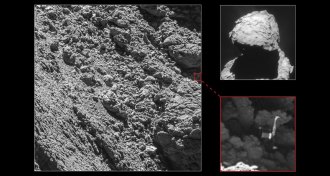 Planetary Science
Planetary SciencePhilae lander spotted on comet 67P
Missing since November 2014, the Philae comet lander has been found lurking in the shadows on comet 67P/Churyumov-Gerasimenko.
-
 Planetary Science
Planetary ScienceRosetta spots Philae lander on surface of comet 67P
Missing since November 2014, the Philae comet lander has been found lurking in the shadows on comet 67P/Churyumov-Gerasimenko.
-
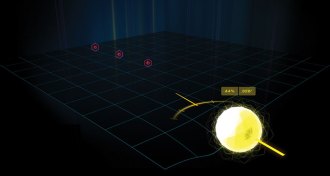 Astronomy
AstronomyBlack hole app lets you blow up stars
NOVA’s Black Hole app for iPad is an addictive game that teaches lessons about gravity and astronomy while letting you hurl stars at one another.
-
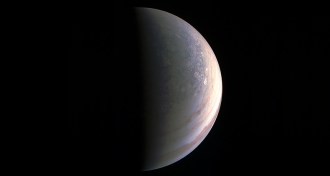 Planetary Science
Planetary ScienceJuno transmits first intimate snapshots of Jupiter
Hurricane-like clouds spiral over Jupiter’s poles, new photos taken by NASA’s Juno spacecraft reveal.
-
 Tech
TechSpaceX rocket explodes on Florida launchpad
SpaceX has lost a Falcon 9 rocket and its satellite payload in a standard prelaunch test.
-
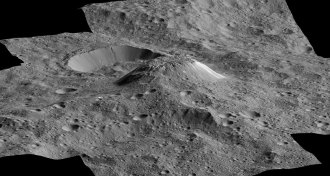 Planetary Science
Planetary ScienceWater plays big role in shaping dwarf planet Ceres
Findings from the Dawn spacecraft turn up cryovolcanoes, ice patches and hydrated minerals on Ceres, supporting the idea that water helped shape the dwarf planet.
-
 Planetary Science
Planetary ScienceWater has played a big role in shaping dwarf planet Ceres
Findings from the Dawn spacecraft turn up cryovolcanoes, ice patches and hydrated minerals on Ceres, supporting the idea that water helped shape the dwarf planet.